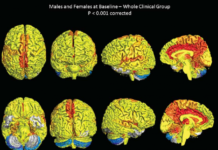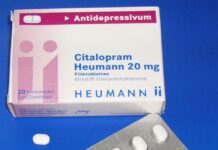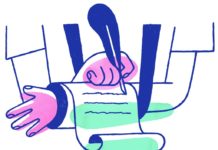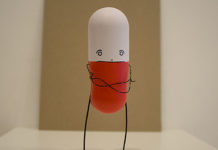FDA Approves Potential “Blockbuster” Sleep Drug
The US FDA on Wednesday approved a new type of drug for insomnia, called Belsroma. Last year, a lengthy investigative report in The New...
“Diagnostic Dissent”: Experiences of Individuals Who Disagreed With Their Diagnosis
Researchers investigate the first-person experiences of people who disagreed with their psychiatric diagnosis of psychosis.
Researchers Make Recommendations to Improve FDA Transparency
Organizations, advocates, scholars, and practitioners had a chance to give feedback regarding FDA processes.
Corrupt Pharma Execs Could Soon Face Jail in Canada
Pharmaceutical industry executives who mislead the public could soon face fines of up to $5 million or two years in jail in Canada. According...
Female Brains are More Active?
From Discover Magazine: Headlines in various news sources reporting on a new study claim that women's brains have been found to be more active than...
Interview: Researchers Deconstruct Ghostwritten Industry Trial for Antidepressant
Researchers, Jon Jureidini, Jay Amsterdam and Leemon McHenry, have taken a closer look at the data from a randomized control trial of citalopram (Celexa) that was ghostwritten and then used by the manufacturers to support claims of the drug’s efficacy and safety in the treatment of child and adolescent depression. To get the background on this story, we connected with Dr. Leemon McHenry, an investigator in this study and a lecturer in philosophy at California State University, Northridge.
Vikas Saini: Protecting Patients From Excessive Medicine
In this piece for the BMJ, Jeanne Lenzer profiles Vikas Saini, a cardiologist who is working to fight against excessive medical treatment. His work with...
43% Increase in ADHD Diagnoses among School-Aged Children in US
Citing a 43 percent jump since 2003, researchers estimate that 5.8 million school-aged children and teens in the US now have an ADHD diagnosis, a staggering 12 percent of this population. The new NIH-funded analysis also found that the percentage of girls diagnosed with ADHD was up 55% and that the percentage of Hispanic children diagnosed shot up 83% over the same timeframe.
FDA Approves Controversial “Pink Viagra”
On Tuesday, the U.S. Food and Drug Administration (FDA) approved Flibanserin (Addyi) to treat low sexual desire in women despite concerns about the drug's limited efficacy and doubts over its clinical relevance. That the drug is being called the "pink Viagra" can be misleading as Viagra treats erectile dysfunction by improving blood flow while Flibanserin targets the brain, and must be taken daily.
Study Identifies Psychiatric Patients at Greatest Risk of Coercion
In an effort to reduce coercion, researchers isolate associated factors including age, relationship status, location, and diagnosis.
Nine Rights Every Patient Should Demand
From The New York Times: Many medical centers, professional associations, and states have developed patients' bills of rights. It is time to develop a Financial Bill of...
“New Depression Meds Not Effective Generally, But Drug Companies Insist Otherwise: Study”
The International Business Times covers a new study showing “trials for new antidepressant medications may not be applicable to the population at large.” “The finding, published in the Mayo Clinic Proceedings, shows recent trials are less generalizable than the prior studies, as researchers excluded most depressed patients from drug company-sponsored treatment studies.”
How Academic Psychiatry Minimized SSRI Withdrawal
If academic psychiatry is evidence-based, why did it take two decades to recognize SSRI withdrawal as widespread and chronic among patients?
New Research on Prenatal SSRI Exposure and Autism
Does maternal SSRI exposure increase the chances that a child will develop characteristics associated with Autism Spectrum Disorder (ASD)?
Authorities Ignoring Deaths, Forced Electroshock in Irish Mental Health System
An internal government investigation found that authorities did not investigate 50% of deaths that occurred inside mental health services in Ireland, reports the Irish...
“The Hidden Harm of Antidepressants”
The Scientific American reports on an in-depth reanalysis revealing widespread underreporting of negative side effects, including suicide attempts and aggressive behavior.
Article →
Withdrawal Symptoms Routinely Confound Findings of Psychiatric Drug Studies
Researchers examine how rapid discontinuation can mimic the relapse of mental health symptoms and confound psychiatric drug studies.
“The Hidden Harms of Antidepressants”
In a new article for Scientific American, Diana Kwon reports on how the true risks for suicide and aggression in children and teens taking...
Can Bloggers Save Science?
-Mind the Brain's James Coyne talks about why so many news stories about health and psychology studies are so bad.
Video: Bruce Levine on “The Anti-Authoritarian Movement to Rehumanize Mental Health”
Films for Action is now hosting a video by MIA contributor Bruce Levine. In his presentation, taped at his Oct 9, 2015 National Empowerment Center talk,...



















